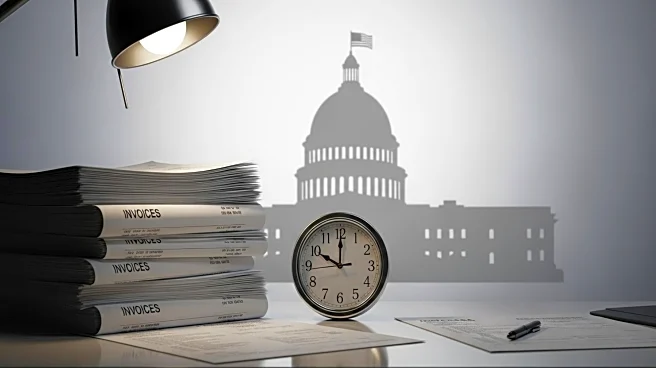What's Happening?
A prolonged government shutdown has resulted in significant financial strain for federal contractors, who are experiencing delays in receiving payments for their services. As the shutdown enters its third week, thousands of contractors are left waiting
for paychecks that may not arrive, impacting their ability to meet financial obligations. This situation highlights the broader economic repercussions of the shutdown, which not only affects federal employees but also extends to those who provide essential services to government agencies.
Why It's Important?
The delay in payments to federal contractors underscores the far-reaching impact of government shutdowns on the U.S. economy. Contractors play a crucial role in supporting government operations, and their inability to receive timely compensation can lead to disruptions in services and financial instability for businesses. This situation may result in contractors reassessing their willingness to engage in future government contracts, potentially affecting the availability and quality of services provided to federal agencies. Additionally, the financial strain on contractors can have ripple effects on local economies, as businesses struggle to maintain operations and meet payroll obligations.
What's Next?
If the government shutdown continues, contractors may face increased financial pressure, leading to potential layoffs or business closures. Stakeholders, including business associations and advocacy groups, may push for legislative solutions to ensure timely payments during shutdowns. The situation could also prompt discussions on the need for contingency plans to protect contractors from financial harm during government funding lapses. As negotiations to end the shutdown progress, contractors will be closely monitoring developments to assess the impact on their operations and financial stability.
Beyond the Headlines
The payment delays experienced by federal contractors during the shutdown raise ethical questions about the government's responsibility to ensure timely compensation for services rendered. This situation highlights the need for improved contractual safeguards and contingency measures to protect contractors from financial instability during government funding disruptions. Additionally, the reliance on contractors for essential services may prompt a reevaluation of government procurement practices and the balance between in-house capabilities and outsourced services.















